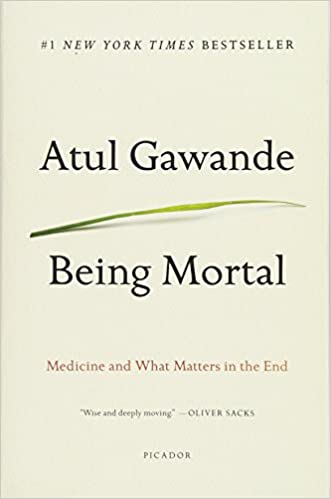Are you holding onto anger, resentment, or hurt? It’s time to break free from the heavy weight of those negative emotions and discover the transformative power of forgiveness. In this article, we delve into the importance of forgiveness and explore effective strategies to let go and heal your heart.
Forgiveness is not about condoning someone’s actions or forgetting what happened. Instead, it’s a choice to release the negative emotions and reclaim your own peace of mind. Studies have shown that practicing forgiveness can improve mental and physical health, reduce stress, and enhance relationships.
We’ll guide you through practical steps to cultivate forgiveness, such as recognizing the impact of unforgiveness on your life, shifting your perspective, and practicing self-compassion. By embracing forgiveness, you can break free from the cycle of pain and find inner healing.
Whether it’s forgiving others or forgiving yourself, this article will equip you with the tools and insights to embark on a journey of forgiveness and experience the profound healing it can bring. Get ready to let go, heal your heart, and create a more peaceful and fulfilling life.

Being Mortal
by Atul Gawande
⏱ 13 minutes reading time
🎧 Audio version available
Understanding forgiveness
Forgiveness is not about condoning someone’s actions or forgetting what happened. Instead, it’s a choice to release the negative emotions and reclaim your own peace of mind. It’s a conscious decision to let go of the pain and resentment that may be holding you back. When you forgive, you are not giving a free pass to the person who hurt you; you are freeing yourself from the burden of carrying that hurt.
Forgiveness is a process that involves acknowledging the pain, understanding the impact it has on your life, and choosing to let go. It takes courage and strength to embrace forgiveness, but the rewards are worth it. By forgiving, you create space for healing, growth, and personal transformation.
The effects of holding onto grudges
Holding onto grudges and refusing to forgive can have a detrimental impact on your emotional, mental, and physical well-being. When you hold onto anger, resentment, or hurt, it takes a toll on your mental health, leading to increased stress, anxiety, and depression. It also affects your physical health, with studies linking unforgiveness to higher blood pressure, weakened immune system, and increased risk of heart disease.
Moreover, holding onto grudges can poison your relationships, both personal and professional. It creates a barrier between you and others, preventing genuine connection and intimacy. It keeps you stuck in a cycle of negativity, preventing you from experiencing joy, peace, and happiness.
The power of forgiveness in healing emotional wounds
Forgiveness has the power to heal emotional wounds and set you free from the pain of the past. When you choose to forgive, you are not denying or minimizing the hurt you’ve experienced. Instead, you are acknowledging your pain and choosing to release it. Forgiveness allows you to let go of the negative emotions that hold you back, creating space for healing, growth, and emotional well-being.
Research has shown that forgiveness can improve mental and physical health. It reduces stress and anxiety, lowers blood pressure, and boosts immune function. It also enhances relationships, fostering empathy, understanding, and compassion. By forgiving, you create a positive ripple effect in your life and the lives of those around you.
Steps to practice forgiveness
Practicing forgiveness is a journey that requires time, self-reflection, and commitment. Here are some practical steps to cultivate forgiveness in your life:
- Recognize the impact of unforgiveness on your life: Take a moment to reflect on how holding onto grudges has affected your emotional well-being, relationships, and overall happiness. Acknowledge the weight it has placed on your heart and the freedom you can gain by letting go.
- Shift your perspective: Try to see the situation from a different angle. Put yourself in the other person’s shoes and try to understand their motivations or circumstances. This doesn’t excuse their actions, but it can help you gain empathy and perspective.
- Practice self-compassion: Understand that forgiving doesn’t mean forgetting or denying your pain. It’s important to acknowledge your own emotions and give yourself permission to heal. Treat yourself with kindness, patience, and compassion throughout the forgiveness process.
- Letting go of resentment and anger: Release the negative emotions that hold you back. This can be done through writing a letter to the person who hurt you (even if you never send it), engaging in therapeutic exercises like meditation or deep breathing, or seeking professional help through therapy or counseling.
- The role of empathy and understanding in forgiveness: Cultivate empathy and understanding towards the person who hurt you. This doesn’t mean you have to reconcile or have a relationship with them, but it allows you to see their humanity and find compassion.
- Cultivating forgiveness in relationships: Extend forgiveness to others in your life, whether it’s a friend, family member, or coworker. Communicate openly, express your feelings, and work towards rebuilding trust and a healthier relationship.
Self-forgiveness: healing from within
In the journey of forgiveness, it’s crucial not to forget about forgiving yourself. Often, we hold onto guilt, shame, and self-blame for past mistakes or regrets. Self-forgiveness is a powerful tool for healing and personal growth.
Acknowledge that you are human and prone to making mistakes. Understand that everyone has moments of imperfection and that self-forgiveness is an essential part of self-care. Treat yourself with the same kindness, empathy, and understanding that you would extend to others.
Letting go of resentment and anger
The benefits of forgiveness extend beyond emotional healing. Research has shown that forgiveness has a positive impact on mental and physical health. By practicing forgiveness, you can experience:
- Reduced stress: Letting go of grudges and resentment reduces stress levels, leading to improved overall well-being.
- Enhanced relationships: Forgiveness fosters empathy, understanding, and compassion, enhancing relationships and fostering healthier connections.
- Improved mental health: Forgiveness reduces symptoms of anxiety, depression, and anger, promoting mental well-being.
- Better physical health: Studies have linked forgiveness to lower blood pressure, improved immune function, and reduced risk of heart disease.
The role of empathy and understanding in forgiveness
Forgiveness is a powerful tool for personal growth and healing. By choosing to forgive, you release the negative emotions and burden that hold you back, creating space for healing, growth, and transformation. Forgiveness is not about condoning or forgetting; it’s about reclaiming your peace of mind and finding freedom from the pain of the past.
Whether it’s forgiving others or forgiving yourself, the journey of forgiveness is a courageous one. It requires self-reflection, empathy, and a commitment to personal well-being. By embracing forgiveness, you can break free from the cycle of pain and find inner healing.
So, let go of anger, resentment, and hurt. Choose forgiveness and experience the profound healing it can bring. Embrace forgiveness, heal your heart, and create a more peaceful and fulfilling life.
Remember, forgiveness is a gift you give yourself.
Cultivating forgiveness in relationships
Forgiveness is a complex and deeply personal process, but at its core, it requires empathy and understanding. When we can put ourselves in someone else’s shoes and try to understand their perspective, it becomes easier to let go of the anger and resentment we may be holding onto. Empathy allows us to see that everyone makes mistakes and that we all have the capacity to change and grow.
Understanding that forgiveness is not about condoning someone’s actions or forgetting what happened is crucial. It’s about choosing to release the negative emotions and reclaim your own peace of mind. By forgiving, you’re not saying that what happened was okay, but rather, you’re choosing to let go of the hold it has on you.
To cultivate empathy and understanding, practice active listening when someone shares their side of the story. Try to see things from their perspective and suspend judgment. This doesn’t mean you have to agree with them, but it opens the door to a more compassionate and forgiving mindset.
Related: The Art of Letting Go: How to Deal with Regret and Move Forward
The benefits of forgiveness for mental and physical health
Forgiveness is often associated with repairing and strengthening relationships. When we hold onto grudges, it creates a barrier between ourselves and the other person. By forgiving, we can break down that barrier and create space for healing and growth.
One effective strategy for cultivating forgiveness in relationships is through open and honest communication. Express how you feel and allow the other person to do the same. This creates an opportunity for understanding and empathy to flourish.
It’s important to remember that forgiveness is a process that takes time. It may not happen overnight, and that’s okay. Be patient with yourself and with the other person. Allow healing to unfold naturally, and don’t rush the process.
Embracing forgiveness for personal growth and healing
The power of forgiveness extends beyond just repairing relationships. It has profound effects on our mental and physical well-being. Research has shown that practicing forgiveness can reduce stress, anxiety, and depression. It improves our overall mental health and allows us to experience greater emotional well-being.
When we hold onto grudges, our bodies also bear the burden. The stress and anger associated with unforgiveness can lead to physical ailments such as high blood pressure, heart disease, and weakened immune system. By practicing forgiveness, we can alleviate these physical symptoms and promote better health.
Forgiveness also enhances our relationships with others. When we let go of anger and resentment, we create space for love, compassion, and understanding to thrive. This not only benefits our personal relationships but also spills over into other areas of our lives, such as our work and social interactions.
What Is Snapreads?

With the Snapreads app, you get the key insights from the best nonfiction books in minutes, not hours or days. Our experts transform these books into quick, memorable, easy-to-understand insights you can read when you have the time or listen to them on the go.
